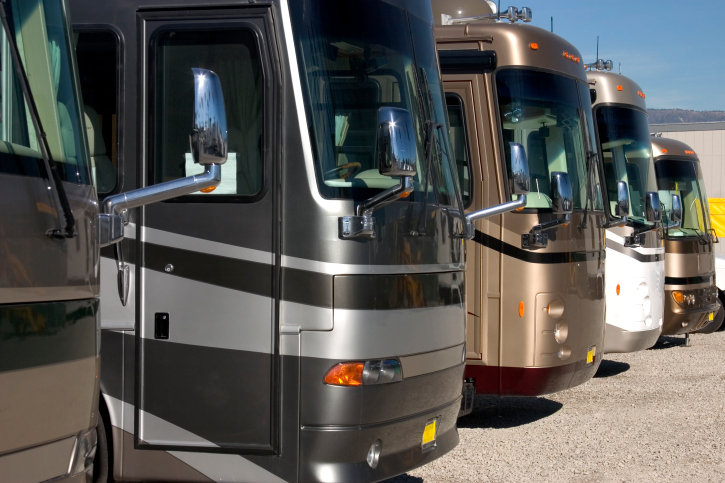 Most American climates are a no-go for RVing in the winter, forcing you to store your vehicle until more forgiving driving conditions return. Like with storing any vehicle, it’s all about preparation and location. Let’s look at steps you should take to prepare your RV for the long winter months of non-use.
Most American climates are a no-go for RVing in the winter, forcing you to store your vehicle until more forgiving driving conditions return. Like with storing any vehicle, it’s all about preparation and location. Let’s look at steps you should take to prepare your RV for the long winter months of non-use.
Winterizing
Remove all valuables, food (even non-perishables), linens, blankets, clothes, etc. from your RV. Thoroughly wash the vehicle inside and out, including the fridge and inside of cabinets and drawers. Defrost the freezer. Close the blinds to prevent sun bleaching. You may also choose to leave mouse/ant traps and containers of baking soda or another odor eliminator around the cabin to keep away critters and foul odors.
When storing for long stretches of time, it’s a good idea to remove the batteries and store them in a dry place where they won’t freeze. You may need to charge them periodically during storage. Fill the gas tank and add a fuel stabilizer, then run the engine for a few minutes so it can travel through the system. Change the oil and add any necessary antifreeze to the radiator and windshield wiper fluid reservoir. Inflate your tires to the maximum recommended cold pressure. Unplug all appliances and turn off the LP gas supply valve and the main breaker.
Empty your wastewater tanks and flush remaining fluids out of the tank drains. Scrub down the holding tanks. Lastly, block off all vents with cardboard and duct tape to keep mice, birds and insects out of your RV.
Storing
An ideal storage location will block an RV from the elements, such as a garage or commercial storage facility. However, this can’t always be accomplished. In some cases you can store your RV right in your very own driveway, which allows the convenience of easy access. RV campgrounds and dealerships may also offer storage space for rent.
Wherever you choose to store your RV, a high-quality cover is important to use. The cover you buy should fit snugly around the model of RV you own and be made from a breathable material to prevent mold and mildew. Chock all four wheels. You may even consider removing the tires and storing your RV on jacks to prevent wear and/or dead spots in the rubber.
This process may take a lot of work, but it’s done to prevent problems from arising during storage that could necessitate expensive repairs when you uncover your RV in the spring. Rather, with proper winterizing and storage, you can uncover your RV and head off on another great adventure.
Protect your RV from year-round risks. Call Peachstate Insurance at 877-997-2478 for more information on Atlanta RV insurance.